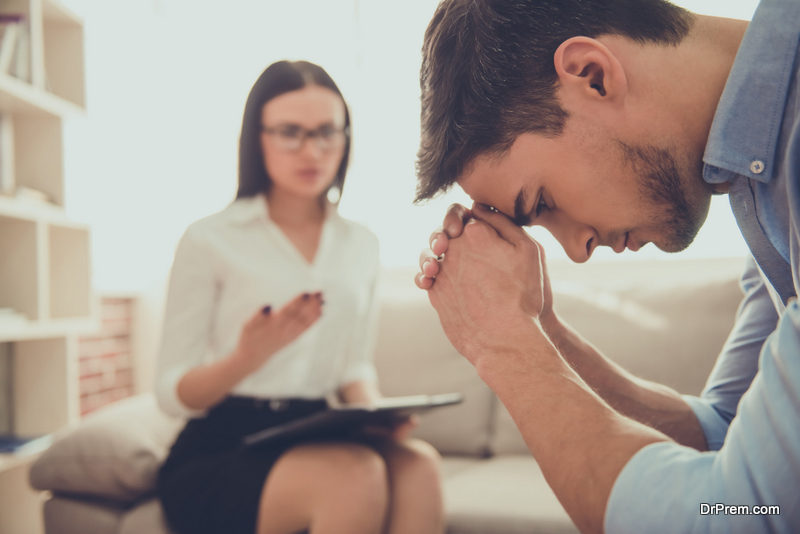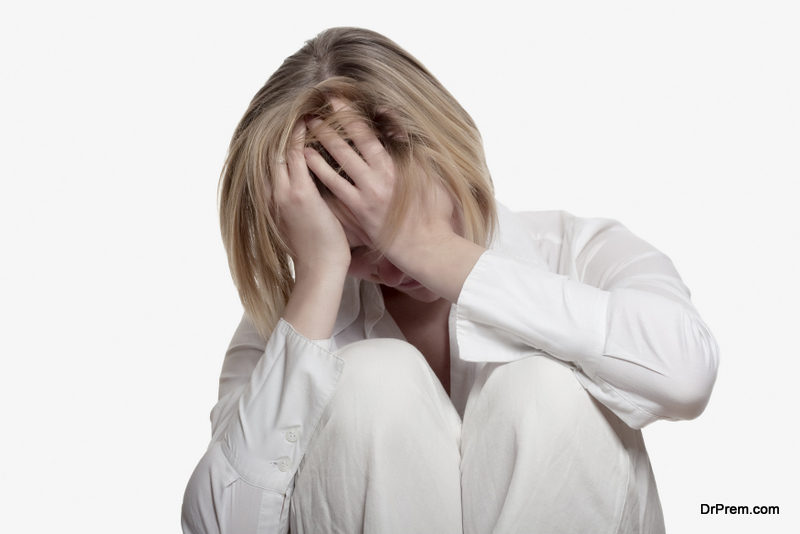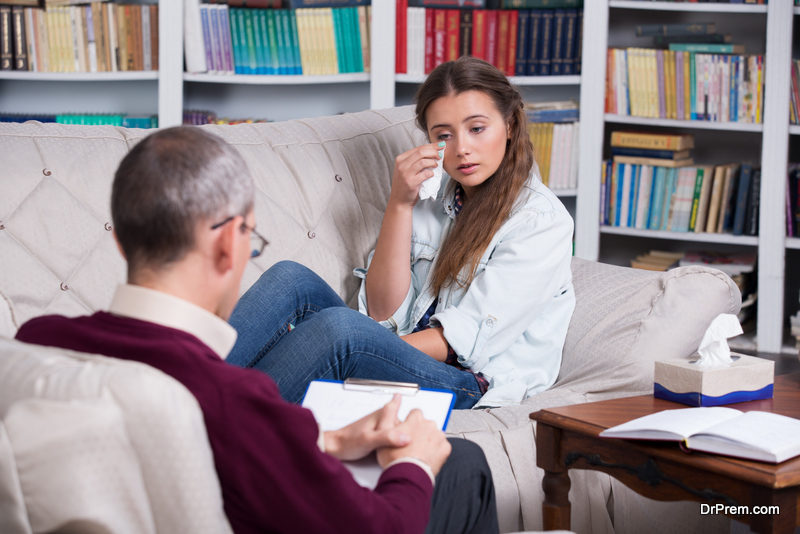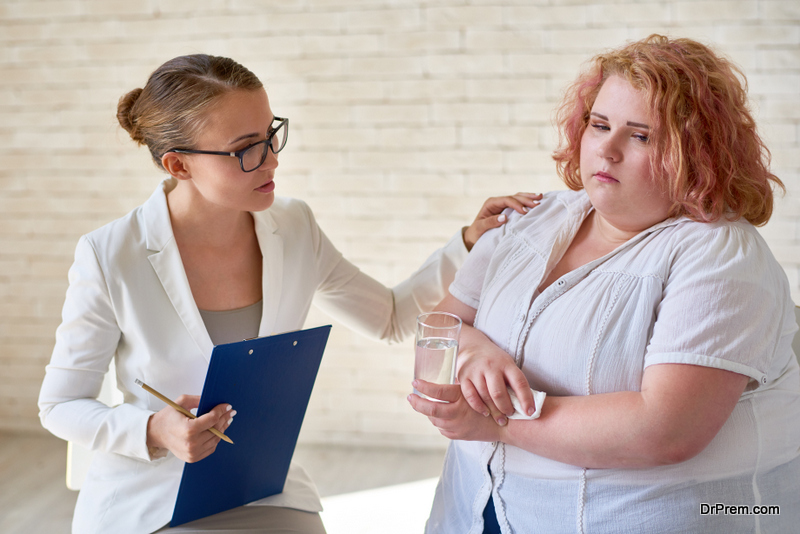A recent survey reported that just under 60 million Americans have sought therapy at one time or another. Whether it’s marriage counseling or personal development, therapy is instrumental in maintaining a healthy frame of mind. So, why does it get such a bad wrap? Whether it’s insecurities or fear of judgment, people often assume therapy is for “crazy people”. This couldn’t be farther from the truth. Some of the healthiest individuals routinely see therapists for behavioral issues, life coaching, and unbiased advice. If you’re still unsure if therapy is right for you, these signs might help you decide. Keep reading to discover a few signs and symptoms that therapy might just be exactly what the doctor ordered!
You Feel Hopeless
 Hopelessness is a common feeling and one that most people experience at one time or another. Whether you recently lost your job, suffered a bad breakup, or failed at something – the future might look dim. While these feelings are completely normal, in time, you learn to shake them off. You stand up, brush yourself off, and move on. Are you having a hard time doing this? Does the thought of trying again seem exhausting? Is the fear of another failure crippling? These are all signs that you may need some emotional coaching to get back on track.
Hopelessness is a common feeling and one that most people experience at one time or another. Whether you recently lost your job, suffered a bad breakup, or failed at something – the future might look dim. While these feelings are completely normal, in time, you learn to shake them off. You stand up, brush yourself off, and move on. Are you having a hard time doing this? Does the thought of trying again seem exhausting? Is the fear of another failure crippling? These are all signs that you may need some emotional coaching to get back on track.
You’re Constantly Tired
Depression, anxiety, and even anger can be exhausting! Most people don’t realize the impact that poor mental health has on your physical well-being. Are you feeling sluggish? Are you struggling to get out of bed in the morning? A certain level of sleepiness due to a demanding work regime is normal. But if you’re finding it hard to complete daily tasks or keep your eyes open, even after a quality night’s sleep, it could be a sign of something more serious. Extreme exhaustion is a sure sign that your mental health is in jeopardy. Another sign is the inability to sleep. If racing thoughts, worry, or anxiety keep you up at night, you might need some mental tools from a therapist to calm both your mind and body.
You’ve Become Isolated From Friends and Family
 Have you always been a very social person? Do you normally enjoy spending time with family and friends? Or partaking in other activities outside the house? The desire to socialize shows that you’re in a positive mental space. Once this desire to interact with others fades, it might be a sign that you’re mental state is at risk. When things that used to bring you joy, no longer do, there’s usually an underlying reason. And a therapist can help you determine why. One of the first things to suffer due to mental or emotional illness are your relationships — romantic, friendly, and those with family. If you’re getting into frequent confrontations, experiencing mood swings, or avoiding contact all together, it could be a cause for concern.
Have you always been a very social person? Do you normally enjoy spending time with family and friends? Or partaking in other activities outside the house? The desire to socialize shows that you’re in a positive mental space. Once this desire to interact with others fades, it might be a sign that you’re mental state is at risk. When things that used to bring you joy, no longer do, there’s usually an underlying reason. And a therapist can help you determine why. One of the first things to suffer due to mental or emotional illness are your relationships — romantic, friendly, and those with family. If you’re getting into frequent confrontations, experiencing mood swings, or avoiding contact all together, it could be a cause for concern.
You’ve Experienced a Recent Trauma
Trauma is defined as a deeply distressing or disturbing experience. People react differently to different levels of trauma. Common and impactful traumatic events include:
- Death of a loved one
- Divorce
- Prolonged abuse
- PTSD
- Accident or physical injury
Following any of these incidents, many people try to brush off their feelings and claim to “be fine”. Not dealing with your emotions won’t make them go away. In fact, harboring, burying, or ignoring feelings associated with a traumatic event may only worsen your mental and physical state. It’s okay to be mad, heartbroken, and feel distraught. These are all normal reactions to a traumatic event. But the important next step is seeking the help of a therapist or clinical psychologist who can help you deal with your feelings in a healthy way.
All of Your Feelings Are Intense
 Again, feeling emotion is a normal and natural part of life. Whether those emotions are positive or negative, healthy individuals feel them, accept or handle them, and then move on. Are your emotions lingering? Or do they seem intense? Things like intense sadness or anger or even elation over small events that don’t require such a enthusiastic reaction could be a sign of a hormonal imbalance. Not only are intense emotions a sign that you may need therapy, but the frequency of these outbursts is also another indicator. Do you experience dramatic mood swings several times a day? Another common warning sign is catastrophizing. This happens when people immediately assume the absolutely worst case scenario when met with a challenge or obstacle. When your mind wanders and you place unrealistic or irrational truths on situations before they’ve even happened, it can be debilitating.
Again, feeling emotion is a normal and natural part of life. Whether those emotions are positive or negative, healthy individuals feel them, accept or handle them, and then move on. Are your emotions lingering? Or do they seem intense? Things like intense sadness or anger or even elation over small events that don’t require such a enthusiastic reaction could be a sign of a hormonal imbalance. Not only are intense emotions a sign that you may need therapy, but the frequency of these outbursts is also another indicator. Do you experience dramatic mood swings several times a day? Another common warning sign is catastrophizing. This happens when people immediately assume the absolutely worst case scenario when met with a challenge or obstacle. When your mind wanders and you place unrealistic or irrational truths on situations before they’ve even happened, it can be debilitating.
Physical Signs and Symptoms
Those sniffles, body aches, and headaches might be a sign of something more than just a seasonal cold or flu. Prolonged stress and depression often manifest as physical illness. Depending on the type of trouble you’re having, you may experience severe and frequent headaches, inability to sleep, a weakened immune system, and even lowered sex drive. If these physical symptoms occur with no known cause, it might mean you need a therapist rather than a general practitioner.
You’re Turning to Substance Abuse
 Are you heading to the liquor store instead of the therapist’s office to handle your stress or personal issues? Using alcohol or drugs to escape from your troubles is a sure sign that therapy could improve your life. Not only are some of these behaviors illegal, but they’re extremely costly — for both your bank account and your quality of life. Before you slide down the slippery slope of addiction, seek out professional help from a therapist. Regardless of your circumstance, the problems you’re running away from will still be there when that high or buzz wear off. Now, you are simply adding the risk of addiction to your already full plate.
Are you heading to the liquor store instead of the therapist’s office to handle your stress or personal issues? Using alcohol or drugs to escape from your troubles is a sure sign that therapy could improve your life. Not only are some of these behaviors illegal, but they’re extremely costly — for both your bank account and your quality of life. Before you slide down the slippery slope of addiction, seek out professional help from a therapist. Regardless of your circumstance, the problems you’re running away from will still be there when that high or buzz wear off. Now, you are simply adding the risk of addiction to your already full plate.
Therapy isn’t for everyone, but if you haven’t even given it a chance, you don’t know what you’re missing. Therapy helps millions of people every day — from children to seniors and everyone in between. Try to enter therapy with an open mind and heart. If you’re exhibiting any of these signs, it might be time to put your pride aside and book an appointment.
Article Submitted By Community Writer




